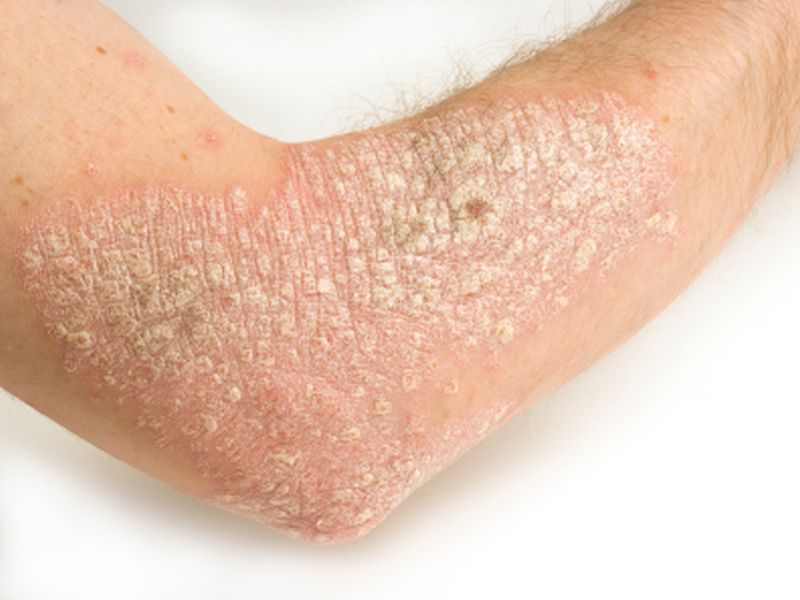Psoriasis, Mental Ills Can Go Hand in Hand
By Steven ReinbergHealthDay Reporter

THURSDAY, May 9, 2019 (HealthDay News) -- Psoriasis is a chronic, inflammatory skin disease that is often coupled with depression, anxiety and even bipolar disease, schizophrenia and dementia, two new studies show.
What is unclear, the researchers acknowledge, is which causes which.
In the first study, Danish researchers collected data on more than 13,600 men and women with psoriasis. Over five years of follow-up, 2.6% developed mental problems, and over 10 years, that number rose to nearly 5%.
These disorders included depression, anxiety, bipolar disease, schizophrenia and dementia. The researchers speculate that since immune disorders have been linked with the development of mental problems, and psoriasis is an immune-disorder disease, it might explain the connection.
"This report is very interesting, as it denotes possible relationships to other mental disorders as well as stated mechanisms, therefore highlighting an awareness of further conditions for providers to be aware of," said Stacie Bell, vice president of research and clinical affairs at the National Psoriasis Foundation.
In the second paper, Korean researchers looked at more than 12,700 psoriasis patients. They found that the risk for anxiety, phantom medical problems, neurotic disorders and sleep problems was doubled and tripled among psoriasis sufferers compared to those without the disease.
Although both studies suggest a link between mental health and psoriasis, neither paper can prove that one causes the other, only that the two are associated.
Both teams of researchers concluded that since patients with psoriasis are at risk for mental problems, dermatologists should be on the lookout and be prepared to assist patients in getting the help they need.
"Patients who are anxious or depressed are common to what I've seen in my practice," said Dr. Michele Green, a dermatologist at Lenox Hill Hospital in New York City. "They've got this disease that is literally taking over their skin, and they have anxiety about it and depression."
Green believes psoriasis triggers the depression and anxiety, but she said it's also known that stress and other mental problems can trigger immune diseases like psoriasis.
A report from the National Psoriasis Foundation and the American Academy of Dermatology recognized that anxiety and depression can be fellow travelers of the disease. They recommend that patients be told about the possibility of developing these problems.
In addition, doctors should ask their patients if they are feeling anxious or depressed and refer them to mental health professionals if necessary.
Treating psoriasis does seem, however, to reduce anxiety and depression, the report noted.
Green said she is careful about how she handles depression and anxiety among her patients. If they ask, she'll refer them to a mental health profession.
"But I've found that if you suggest to patients they may need a psychiatrist, they get insulted," she said.
The reports were published online May 8 in the journal JAMA Dermatology.
More information
For more information on psoriasis, visit the National Psoriasis Foundation.

The news stories provided in Health News and our Health-E News Newsletter are a service of the nationally syndicated HealthDay® news and information company. Stories refer to national trends and breaking health news, and are not necessarily indicative of or always supported by our facility and providers. This information is provided for informational and educational purposes only, and is not intended to be a substitute for medical advice, diagnosis, or treatment.

